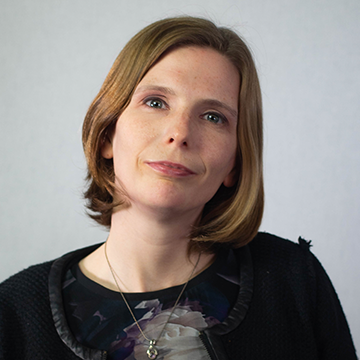CDCS Colloquium: Lucy March
- Annenberg School, Room 300
What Is Internet Music? Negotiating Identity and Community Through Digital Music Subcultures
About the Event
Things can get a little weird when you’re online.
In a “postdigital” age, the ubiquitousness of the Internet and other digital technologies arguably means that Internet users are increasingly using popular media to make sense of our relationships with these technologies (Mazierska et al., 2018), while more of our cultural referents emerge from digital environments. These referents are easily borrowed, mashed, and mixed up by users with varied means of technological expertise and accessibility, as the lines between production and consumption become blurred, and digital anonymity obscures power dynamics scholars have previously used to make sense of the politics of identity and representation. Music as a representational medium helps us make sense of not only the individual self, but the self as part of a particular place, time, or social group; it places us in imaginative cultural narratives (Frith, 2007), making it a rich medium through which to interrogate these patterns of digital media production and circulation.
This talk explores some of the weirder corners of the musical Internet, and presents March’s framework for the phenomenon of “Internet music,” resulting from deep ethnographic immersion in, and textual/discursive analyses of three Internet music genres (all of which you may have never heard of): vaporwave, hyperpop, and phonk. It interrogates how representations of racial, gender, and sexual identity are negotiated by both producers and fans of these musics, and explores how corporately-owned platforms like YouTube and Spotify have simultaneously shaped and co-opted Internet music sounds and paratexts. This talk will situate these musics as exemplars for understanding cultural evolution and spread in the digital age, with serious consequences for how we spend time online.
March will also discuss the implications of her broader research agenda on music and digital culture, and show how figures from virtual musician Hatsune Miku to YouTube music critic Anthony Fantano are shaping the cultural landscape.
About the Speaker

Lucy March is a scholar of Internet cultures, popular music, and identity. She earned her Ph.D. in Media and Communication from Temple University. The questions that drive her research include how representations of gender, racial, and sexual identity manifest in popular media, and how cultural production and circulation in online environments can reveal and reflect structural inequalities. Lucy’s work is highly interdisciplinary, and centers on the ways that people experience culture online through qualitative methodologies, including digital ethnography.
Lucy’s dissertation, which she is currently developing into a book manuscript, explores the phenomenon of digitally based popular music scenes, or “Internet music.” The project interrogates dynamics of cultural borrowing and hybridity through textual and discourse analyses informed by a deep immersion in Internet music spaces. This project also explores how the dynamics of the online platforms shape the characteristics of Internet music scenes, including their tendency toward anonymity, low barrier to entry, and blurred lines between producers and consumers. Ultimately, this project shows how social and cultural identities and differences come to be constructed and articulated in online environments, and how individuals are increasingly using popular media to make sense of their relationships with digital technologies. Lucy is also interested in the intersection of popular music and meme cultures, digital celebrity, and how platform dynamics impact these phenomena.
Her work has been published in Popular Communication, Television and New Media, and others, and has been presented at the annual conferences for the International Communication Association, the International Association for the Study of Popular Music, and the Cultural Studies Association (for which she also serves on the Governing Board). Lucy also has expertise in East Asian popular culture and music, and has lived and studied in Beijing and Taiwan.
Events
View AllDisclaimer: This event may be photographed and/or video recorded for archival, educational, and related promotional purposes. We also may share these video recordings through Annenberg's website or related platforms. Certain events may also be livestreamed. By attending or participating in this event, you are giving your consent to be photographed and/or video recorded and you are waiving any and all claims regarding the use of your image by the Annenberg School for Communication. The Annenberg School for Communication, at its discretion, may provide a copy of the photos/footage upon written request.
